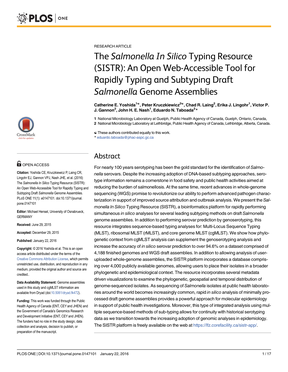Photo by Freepik
Dyslexia affects millions of individuals worldwide, impacting their ability to read, write, and spell effectively.
However, with the right tools and support, people with dyslexia can overcome these challenges and thrive.
This article explores the most effective dyslexia reading programs available today, providing valuable insights for parents, educators, and individuals seeking to improve their reading skills.
Discover how these specialized programs can transform struggles into strengths and pave the way for academic and personal success.
What is Dyslexia and How Does it Impact Reading?
Dyslexia is a learning disability that primarily affects reading and language processing.
It’s characterized by difficulties with accurate word recognition, poor spelling, and decoding abilities.
Many dyslexic students struggle with reading comprehension and fluency, which can have far-reaching effects on their academic performance and self-esteem.
The impact of dyslexia on reading can be significant.
Individuals may find it challenging to recognize common words, sound out unfamiliar terms, or understand the overall meaning of a text.
If left unaddressed, this can lead to frustration and a dislike of reading, potentially affecting a person’s educational and career opportunities.
Why are Specialized Reading Programs Essential for Dyslexic Learners?
Specialized reading programs are crucial for dyslexic kids and learners because they address the unique challenges these individuals face.
Traditional reading instruction methods often fall short for students with dyslexia, as they don’t account for the specific cognitive processes involved in their learning difficulties.
Dyslexia reading programs are designed to target the core deficits associated with the condition, such as phonemic awareness and phonological processing.
By using multisensory techniques and structured, systematic approaches, these programs help dyslexic learners develop strong foundational skills and strategies to overcome their reading challenges.

Image by Freepik
What is the Orton-Gillingham Approach?
The Orton-Gillingham approach is a pioneering method in dyslexia education.
Developed by Dr. Samuel Orton and educator Anna Gillingham, this approach forms the basis for many effective dyslexia reading programs today.
It emphasizes a multisensory, structured, and sequential approach to teaching reading and spelling.
Key principles of the Orton-Gillingham reading programs include:
- Direct, explicit instruction in phonics and phonemic awareness
- Systematic and cumulative learning progression
- Multisensory techniques engaging visual, auditory, and kinesthetic pathways
- Continuous feedback and reinforcement
Many of the best dyslexia reading programs incorporate elements of the Orton-Gillingham approach, adapting its principles to create comprehensive and effective learning experiences.
5 Best Dyslexia Reading Programs Available
Several highly regarded dyslexia reading programs have emerged, each with its unique strengths and methodologies.
Some of the most popular and effective options include:
1. Wilson Reading System
The Wilson Reading System is a structured literacy program based on Orton-Gillingham principles. It focuses on phonemic awareness, decoding, and spelling for students with dyslexia and other reading difficulties.
Notable features include:
- Multisensory techniques engaging visual, auditory, and kinesthetic-tactile pathways
- 12-step structure building from basic to complex language concepts
- Systematic approach to teaching reading and spelling
- Suitable for all ages, from children to adults
- Flexible implementation in one-on-one, small group, or classroom settings
- Addresses specific challenges of dyslexic learners
- Proven effectiveness in improving reading and spelling skills
This comprehensive dyslexia reading program helps students develop strong literacy foundations, boosting their confidence and abilities over time.
2. Barton Reading & Spelling System
The Barton Reading & Spelling System is a highly structured, Orton-Gillingham-inspired dyslexia reading program. It’s designed for one-on-one tutoring and can be used with both children and adults.
Key features include:
- 10 levels of instruction, from basic phonemic awareness to advanced spelling rules
- Multisensory approach using visual, auditory, and tactile methods
- Explicit instruction in phonics, fluency, vocabulary, and comprehension
- Color-coded materials to aid in learning and retention
- Scripted lessons for easy implementation by parents or tutors
- Regular assessments to ensure mastery before progressing
- Suitable for homeschooling or supplemental instruction
This proven dyslexia program is known for its effectiveness in helping a student with dyslexia improve their reading and spelling skills.
Its user-friendly design allows even non-professionals to deliver high-quality instruction.
3. Lindamood-Bell Reading Programs
Lindamood-Bell Reading Programs offer a suite of specialized interventions for students with dyslexia and other reading challenges.
These research-based programs target different aspects of reading, providing comprehensive support for diverse learner needs.
- Focuses on phonemic awareness and speech-sound discrimination
- Helps students identify and manipulate sounds in words
- Uses multisensory techniques to improve reading, spelling, and speech
Many schools and learning centers have adopted Lindamood-Bell methods as part of their dyslexia reading programs, recognizing their value in supporting students with diverse learning styles and needs.
4. Reading Horizons
Reading Horizons is a comprehensive dyslexia reading program that employs a multisensory approach based on Orton-Gillingham principles.
It offers solutions for both classroom implementation and individual instruction.
Key features include:
- Systematic and explicit phonics instruction
- Digital and print materials for flexible delivery
- Suitable for students of all ages, from elementary to adult learners
- Incorporates technology with interactive software and mobile apps
- Provides real-time progress monitoring and data analysis
- Includes a spelling component to reinforce reading skills
The program is structured around the Reading Horizons Discovery method, which teaches foundational reading skills through a sequence of 42 sounds of the alphabet.
This approach helps students with dyslexia decode words more effectively and build reading fluency.
5. Orton-Gillingham Online Academy
The Orton-Gillingham Online Academy offers comprehensive training and resources for educators and parents to implement the Orton-Gillingham approach effectively.
Key features include:
- Online courses for various levels of Orton-Gillingham certification
- Flexible, self-paced learning options
- In-depth instruction on phonics, phonemic awareness, and multisensory teaching
- Practical strategies for classroom implementation
- Resources for creating individualized lesson plans
- Ongoing support and community for OG practitioners
Each of these programs has proven effective for many dyslexic learners, but it’s essential to consider individual needs when selecting the right program.
How Do These Programs Differ from Traditional Reading Instruction?
Dyslexia reading programs differ significantly from traditional reading instruction in several key ways:
1. Structured and sequential:
These programs follow a carefully designed sequence, introducing new concepts only after mastery of previous ones.
2. Multisensory approach
They engage multiple senses simultaneously, reinforcing learning through visual, auditory, and kinesthetic activities.
3. Explicit phonics instruction
Dyslexia programs place a strong emphasis on teaching the relationship between sounds and letters explicitly.
4. Repetition and review
Consistent practice and review are built into the curriculum to ensure retention of skills.
5. Individualized pacing
Many programs allow for flexible pacing to accommodate the learner’s needs and progress.
These differences make dyslexia reading programs more suitable for individuals who struggle with traditional reading instruction methods.
What Role Does Phonemic Awareness Play in Dyslexia Reading Programs?
Phonemic awareness is a critical component of effective dyslexia reading programs.
It refers to the ability to identify and manipulate individual sounds (phonemes) in spoken words. For many individuals with dyslexia, difficulties with phonemic awareness are at the root of their reading challenges.
Dyslexia reading programs typically include extensive exercises and activities to develop phonemic awareness skills, such as:
- Identifying and producing rhymes
- Blending sounds to form words
- Segmenting words into individual sounds
- Manipulating sounds by adding, deleting, or substituting phonemes
By strengthening phonemic awareness, these programs lay a solid foundation for improved reading and spelling abilities.
Can Dyslexia Reading Programs Improve Spelling Skills?
Yes, many dyslexia reading programs are designed to improve both reading and spelling skills.
The connection between reading and spelling is strong, and many of the strategies used to enhance reading can also boost spelling abilities.
These programs often incorporate explicit spelling instruction, teaching students to recognize and apply spelling patterns and rules.
They may use techniques such as:
- Word sorting activities to identify spelling patterns
- Multisensory spelling exercises (e.g., tracing letters while saying sounds)
- Systematic introduction of spelling rules and exceptions
- Regular practice and review of learned spelling patterns
By addressing both reading and spelling simultaneously, these programs provide a comprehensive approach to literacy development for dyslexic learners.

Image by Freepik
How Can Parents Support Their Dyslexic Child’s Reading Journey?
Parents play a crucial role in supporting their dyslexic child’s reading development. Here are some ways parents can help:
1. Choose the right program
Research and select a dyslexia reading program that suits your child’s needs and learning style.
2. Maintain consistency
Ensure regular practice and follow the program’s guidelines for optimal results.
3. Create a positive environment
Encourage and praise your child’s efforts, focusing on progress rather than perfection.
4. Read aloud together
Engage in shared reading activities to foster a love for stories and language.
5. Use assistive technologies
Explore tools like text-to-speech software or audiobooks to support comprehension.
Listening.com offers a vast library of audiobooks specifically designed for dyslexic learners, featuring adjustable reading speeds and synchronized text highlighting to enhance reading skills while promoting comprehension.
6. Collaborate with educators
Work closely with your child’s teachers to ensure a cohesive approach between home and school.
Remember, patience and persistence are key when supporting a child with dyslexia in their reading journey.
Are There Dyslexia Reading Programs Suitable for Adult Learners?
Absolutely! Many dyslexia reading programs are adaptable for adult learners or have versions specifically designed for older students.
Some programs well-suited for adults include:
1. Barton Reading & Spelling System 2. Wilson Reading System 3. Lindamood-Bell Programs
These programs recognize that adult learners may have different needs and motivations compared to children.
They often offer more mature content and a faster pace while still maintaining the structured, multisensory approach essential for dyslexic learners.
Adult learners can benefit greatly from these programs, improving their reading skills and boosting their confidence in personal and professional settings.
How Do I Choose the Best Dyslexia Reading Program?
Selecting the best dyslexia reading program depends on several factors:
1. Individual needs: Consider the specific strengths and challenges of the learner.
2. Age and learning stage: Choose a program appropriate for the student’s age and current reading level.
3. Implementation setting: Determine whether the program will be used at home, in school, or with a tutor.
4. Time commitment: Consider the time required for the effective implementation of the program.
5. Cost and resources: Evaluate the financial investment and necessary materials.
6. Evidence of effectiveness: Look for proven dyslexia programs with research-backed results and positive user testimonials.
7. Professional support: Consider whether access to trained instructors or ongoing support is important.
It’s often helpful to consult with educational specialists or dyslexia organizations for personalized recommendations on the best dyslexia reading programs.
Key Takeaways: Empowering Dyslexic Readers
– Dyslexia reading programs are essential tools for overcoming reading and spelling challenges associated with dyslexia.
– The Orton-Gillingham approach forms the foundation for many effective dyslexia reading programs.
– These specialized programs differ from traditional reading instruction by using structured, multisensory, and explicit teaching methods.
– Many programs address both reading and spelling skills simultaneously.
– Parents play a vital role in supporting their child’s reading journey through consistent practice and encouragement.
– Dyslexia reading programs are available for adult learners, offering opportunities for lifelong improvement.
– Choosing the best program involves considering individual needs, implementation settings, and evidence of effectiveness.
By understanding and utilizing these specialized reading programs, individuals with dyslexia can unlock their full potential, transforming their relationship with reading and opening doors to lifelong success.
Whether you’re a parent seeking a reading program for dyslexia or an educator looking to implement Orton-Gillingham reading programs in your classroom, these effective dyslexia programs can make a significant difference in the lives of students with dyslexia.









